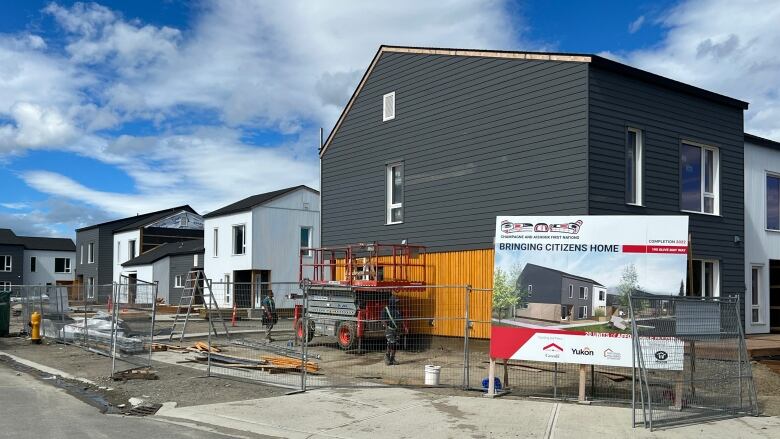As housing crisis worsens, Whitehorse city council looks for answers
Recent study suggests the number of homeless, underhoused people is up 30 per cent in 2 years

Whitehorse is booming. So is homelessness in the Yukon capital.
Safe At Home's latest point-in-time count, a survey of people experiencing various kinds of homelessness, found 197 people in the city were outright homeless or underhousedin April 2023. In 2021, the last time the point-in-time-count was conducted, the figure was 151.
That's an increase of more than 30 per cent. Over roughly the same time, the city's population grew by just under five per cent.
"People are using shelters in greater numbers, and until we get our system into a space where people are using shelters as an emergency and are being diverted from shelters into permanent and stable housing ... we are going to continue this cycle," said Kristina Craig, executivedirector of the Yukon Anti-Poverty Coalition.
At city council's standing committees meeting Monday, councillors said the city needs to do more to increase the affordable housing supply.
"One area that, aswe look through our processes and changes to our development incentives, [is] how we could use the existing tools in our toolkit to kickstart investment and construction of new rental properties," said Coun. Ted Laking.
"And not just a single detached house thatone purchases and then rents it for $3,000 a month, but actual rental units that are available at a more affordable rate."
The city is conducting a review of its development incentives policy, said Mike Gau, director of development services. That study will include interviews with owners of vacant lots who were asked why they're not developing their land. The report is expected to be presented to council sometime in November, he said.
Coun. Michelle Friesen said housing activists want to see the city crack down on short-term housing rentals, such as Airbnb. Right now the city has no policy on such rentals, despite complaints that they remove units that could be rented to long term tenants from the housing market.
Gau said the city's housing and land advisory committee, which is made up of First Nations, developers, citizens and city staff, is studying the impact of short-term rentals. He said the committee is expected to issue recommendations later this fall.
City manager Jeff O'Farrell said the city also tried so far, unsuccessfully to convince Ottawa to hand over the lot at 419 Range Road, home to an aging federal office building, under a program that divests surplus government land for use as affordable housing.
"Initially we believed that there was some prospect that that Range Roadlocation could be made available to us or a partner through this program," he said. "But in further inquiry we discovered that our options were somewhat limited."
City staff said another nearby federal lot could be available, but there's no word on when the federal government might transfer the land.
With files from Rafsan Faruque Jugol












_(720p).jpg)


 OFFICIAL HD MUSIC VIDEO.jpg)
.jpg)



























































































